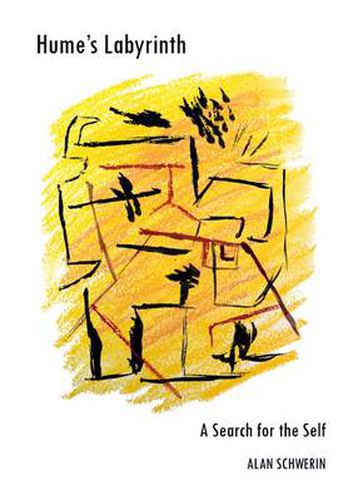Readings Newsletter
Become a Readings Member to make your shopping experience even easier.
Sign in or sign up for free!
You’re not far away from qualifying for FREE standard shipping within Australia
You’ve qualified for FREE standard shipping within Australia
The cart is loading…






In his magnum opus, David Hume asserts that a person is nothing but a bundle or collection of different perceptions, which succeed each other with an inconceivable rapidity, and are in a perpetual flux and movement. (Treatise 252) Hume is clearly proud of his bold thesis, as is borne out by his categorical arguments and analyses on the self. Contributions like this will, in his opinion, help establish a new science of human nature, which will not be inferior in certainty, and will be much superior in utility to any other of human comprehension. (Treatise xix) Unfortunately for Hume, the bundle theory of the self subsequently elicits substantial criticism and hostility from numerous critics, both philosophical and non-philosophical. As confident as the young Scot is about the merits of his theory when he first proposes it, the sharp critical responses to his thought on the self ultimately compel him to withdraw his controversial views from public scrutiny. The irony is that the author of the bundle theory of the self himself acknowledges that his account of the self is seriously defective. In his appendix to the Treatise, Hume decries the labyrinth that his views on the self have driven him into. Five years in the making, Hume’s Labyrinth: A Search for the Self explores in detail both Hume’s views on the self and his critical reservations on an account of the self that would subsequently become highly influential in the philosophy of mind.Central to Hume’s Labyrinth is the suggestion that a careful analysis of the appendix to the Treatise throws an invaluable light on a number of elements fundamental to Hume’s views on the self, not least of which is the role of Berkeley’s views on language. While Hume often acknowledges the significance of Berkeley’s philosophy in the Treatise, the argument here is that Berkeley’s account of terms is the foundation of Hume’s philosophy of the mind, with its contentious bundle theory of the self. And when this influence is assayed a new dimension of Hume’s views on the self emerges. For now it appears that the bundle theory of the self is nothing but a heuristic device adopted by Hume to help further philosophical investigations into the mind. In short, it turns out that Hume is a pragmatist, intent on presenting an account of the self that researchers interested in the problems of human nature will find useful.
$9.00 standard shipping within Australia
FREE standard shipping within Australia for orders over $100.00
Express & International shipping calculated at checkout
In his magnum opus, David Hume asserts that a person is nothing but a bundle or collection of different perceptions, which succeed each other with an inconceivable rapidity, and are in a perpetual flux and movement. (Treatise 252) Hume is clearly proud of his bold thesis, as is borne out by his categorical arguments and analyses on the self. Contributions like this will, in his opinion, help establish a new science of human nature, which will not be inferior in certainty, and will be much superior in utility to any other of human comprehension. (Treatise xix) Unfortunately for Hume, the bundle theory of the self subsequently elicits substantial criticism and hostility from numerous critics, both philosophical and non-philosophical. As confident as the young Scot is about the merits of his theory when he first proposes it, the sharp critical responses to his thought on the self ultimately compel him to withdraw his controversial views from public scrutiny. The irony is that the author of the bundle theory of the self himself acknowledges that his account of the self is seriously defective. In his appendix to the Treatise, Hume decries the labyrinth that his views on the self have driven him into. Five years in the making, Hume’s Labyrinth: A Search for the Self explores in detail both Hume’s views on the self and his critical reservations on an account of the self that would subsequently become highly influential in the philosophy of mind.Central to Hume’s Labyrinth is the suggestion that a careful analysis of the appendix to the Treatise throws an invaluable light on a number of elements fundamental to Hume’s views on the self, not least of which is the role of Berkeley’s views on language. While Hume often acknowledges the significance of Berkeley’s philosophy in the Treatise, the argument here is that Berkeley’s account of terms is the foundation of Hume’s philosophy of the mind, with its contentious bundle theory of the self. And when this influence is assayed a new dimension of Hume’s views on the self emerges. For now it appears that the bundle theory of the self is nothing but a heuristic device adopted by Hume to help further philosophical investigations into the mind. In short, it turns out that Hume is a pragmatist, intent on presenting an account of the self that researchers interested in the problems of human nature will find useful.